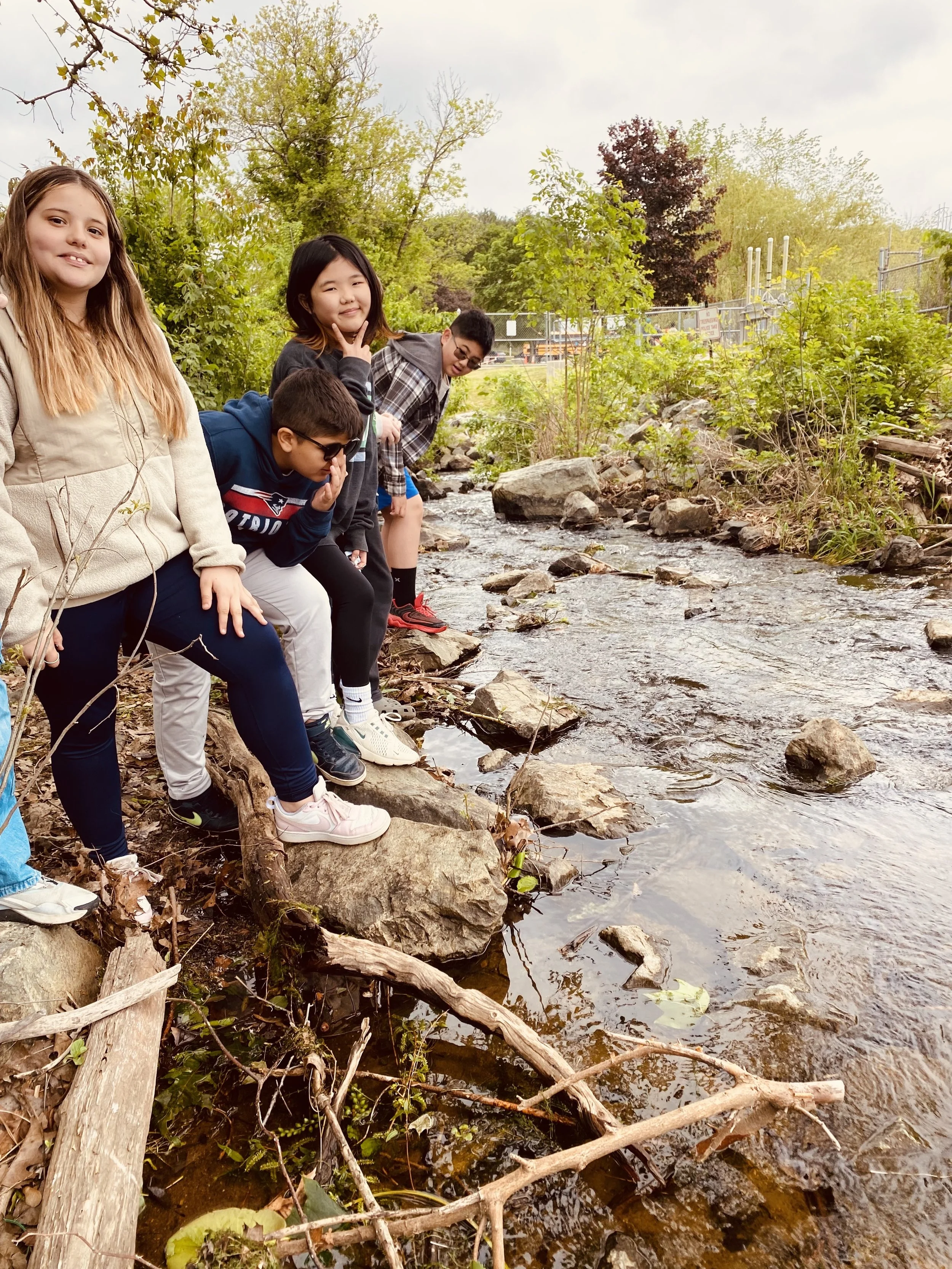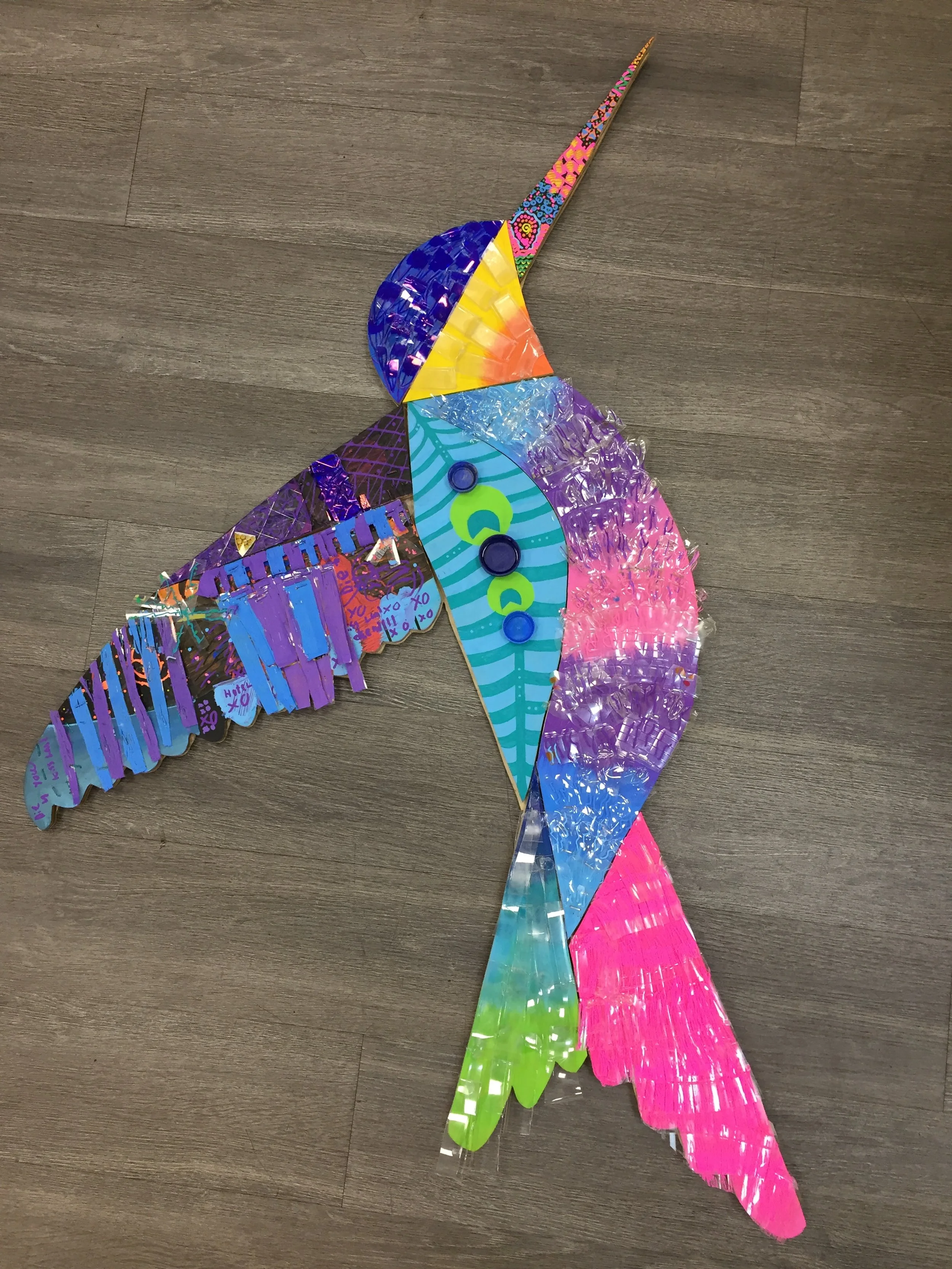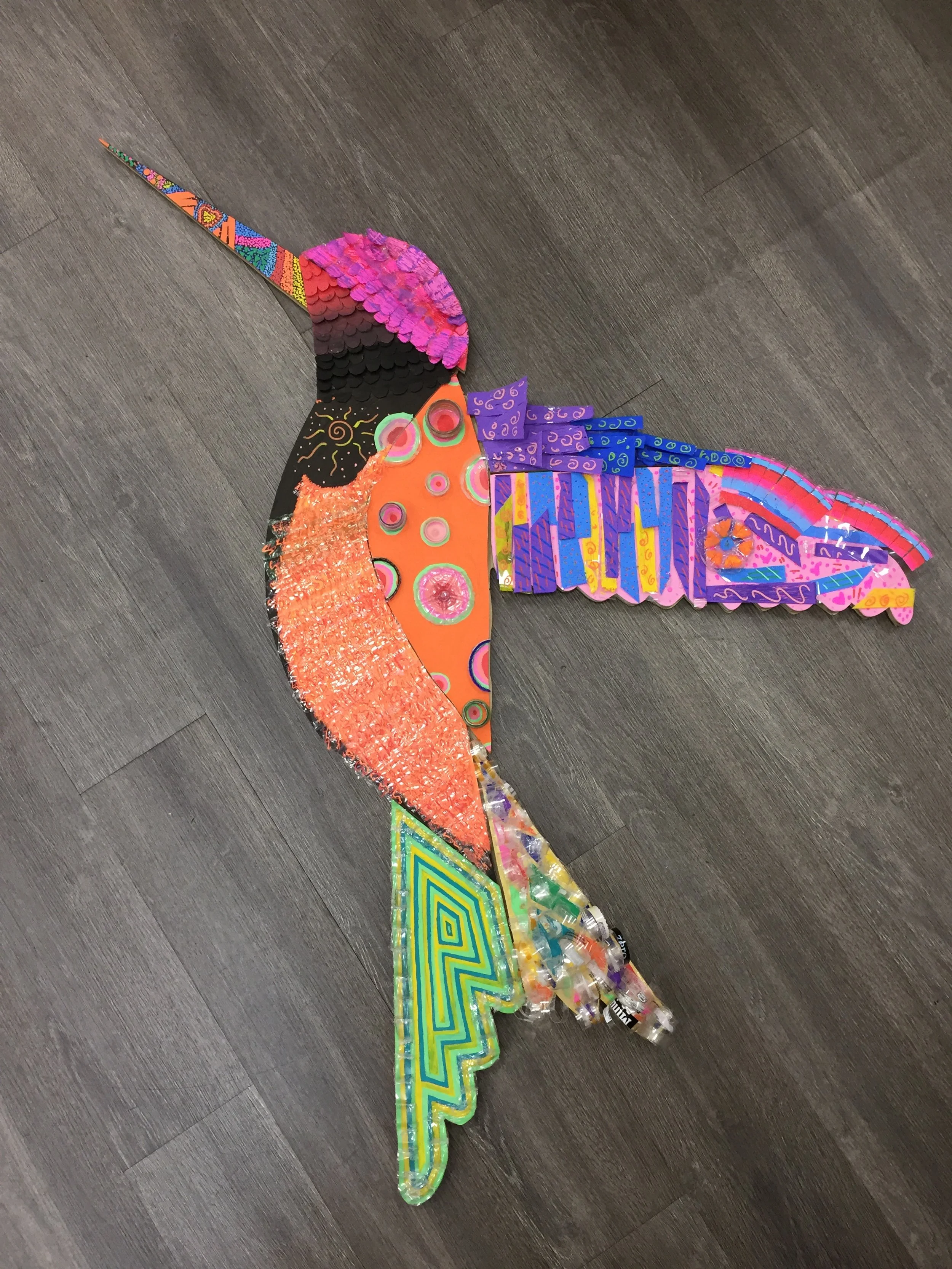MyRWA expands their education team, engaging over 2,000 students in the classroom during the ‘24-’25 school year
By Natalia Bayona, MyRWA Education Manager
The 2024-2025 school year was the most successful year yet for MyRWA’s education team! Our Education Manager worked with six community educators across 18 communities to engage over 2,150 students in the classroom! Educators helped craft new hands-on lessons focusing on herring ecology, biodiversity in parks and local green infrastructure in hopes of connecting more students to their own natural spaces. We also engaged over 1,400 students and 2,500 adults at educational tabling events in Arlington, Cambridge, Everett, Malden, Somerville, and Wilmington throughout the school year.
5th grade students from North Intermediate School in Wilmington visiting Scalley Dam at Horn Pond to learn more about the herring migration. Credit: Natalia Bayona
Education Manager Natalia Bayona teaches 3rd & 4th grade students from the ACERA School in Winchester how to sample water quality from the Aberjona River at Davidson Park. Credit: Danny Fain
Michelle Faller demonstrates the urban heat island effect using a model birdhouse at Stratton Elementary’s Science & Math Festival in Arlington Credit: Natalia Bayona
Our educators helped expand our existing curriculum by designing new, hands-on activities for the classroom. One of our educators, Michelle Faller, created a 3D-printed tabletop game on the complex herring food web that challenged students to sort species based on their habitat requirements and relationship to herring. We also incorporated station learning into our classroom lessons to introduce stormwater pollution and green infrastructure solutions like infiltration trenches in a way that challenges students to think like engineers. Students worked in groups to study infiltration of various materials, model how pollutants move throughout a watershed, and design their own infiltration trenches using recycled materials!
We also highlighted our existing grant work like addressing single-use plastic pollution and introducing green infrastructure, like trenches, throughout the watershed by connecting students to their local green spaces in a new way. We worked with Somerville and Cambridge after school students to study phenology and identify early blooms at local parks, documenting our observations in DIY nature journals. We involved students in removing invasive garlic mustard and picking up trash at Riverbend Park and Mary O’ Malley State Park to learn about ways to protect our urban parks. To wrap up the year, we teamed with our community artist Carolyn Lewenberg and youth from La Colaborativa in Chelsea to create hummingbird sculptures using recyclables we found at Island End River! We are hopeful student experiences like these will encourage families to find more ways to spend time outdoors and become stewards.
La Colaborativa youth using trash collected from around Island End River to make hummingbird sculptures. Credit: Carolyn Lewenberg.
Lastly, we were especially grateful to see our program grow over the past year through existing partnerships with municipalities, schools, and community members. We worked in 11 new schools, thanks to the many connections formed between teachers and our community educators across districts! We now see school communities making efforts to support our on-the-ground projects and involve students in creating real solutions to environmental issues. Our long-time partners at Fayerweather School in Cambridge held an end-of-year community meeting led by their 3rd & 4th grade students advocating for the end to combined sewer overflows (CSOs) in Alewife Brook. Students shared songs and poems about the Mystic, held a mini speaker panel with experts on water quality, and shared a video PSA in seeking donations for MyRWA. The student class raised $1,250 for MyRWA to support our efforts to clean up Alewife Brook!
Photos from the Fayerweather School community meeting. Credit: Fayerweather School
We look forward to another year of making fun connections and seeing smiling student faces! We hope you will help us in our continued efforts to engage with youth throughout our watershed communities through free of cost, place-based programming that helps solve the environmental issues impacting them the most. We encourage interested teachers and youth groups to reach out to our Education Manager Natalia (Natalia.Bayona@mysticriver.org) and visit our website at mysticriver.org/education to learn more about our year-round program offerings!















